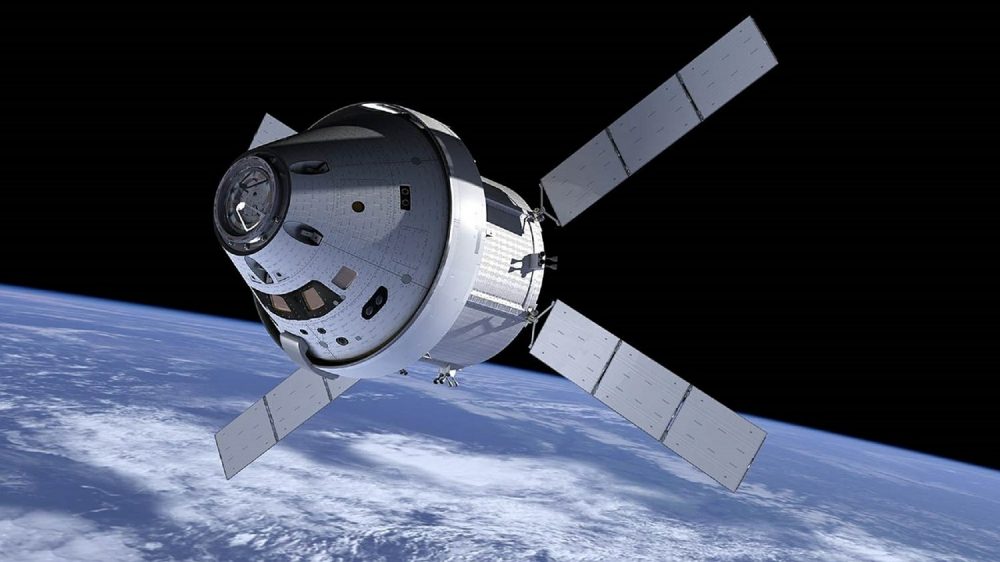‘ius spatium’ is a new form of citizenship that gives right to be a ‘space citizen’. ‘jus’ or ‘ius’ can be interchanged accordingly.
Citizenship in earth exists in several forms
- ius Sanguini – The Right of Blood
- ius algorithmi – Algorithmic citizenship based on accessing internet data
- ius Soli – The Right for Soil
- ius Doni – Citizenship by donation
- ius Pecuniae – Citizenship for money
Space Citizenship
Space citizenship is not far away, will become a reality soon where humans (space citizens) will be able to visit space stations and colonies unimpeded. Currently, it is only possible for millionaires to undertake space missions.
In the future say in hundred years, Artificial Intelligence (AI) would have gone significant development, it would be also possible take humanoid robots (cyborg) to space. It would be also possible to buy and sell robot citizens.
Stephen Hawking, who is no longer with us, made dire predictions into the future saying that AI may replace humans altogether and humans to colonise other planets.
“I fear that AI may replace humans altogether. We are running out of space and the only places to go to are other worlds. It is time to explore other solar systems,” he continued. “Spreading out may be the only thing that saves us from ourselves. I am convinced that humans need to leave Earth.”
He also believed we have just a century left on Earth. Read more: https://t.co/5a3eQxgyjX pic.twitter.com/6LTGwRNYNO
— World Economic Forum (@wef) August 18, 2018
Billionaires working on Space projects
Several billionaires are working on exciting space projects to send humans to space..
- Dotcom Russian billionarie Yuri Milner, backing the Breakthrough Starshot project for an interstellar probe.
- Internet South-African-Canadian-American billionaire Elon Musk, behind SpaceX and a project to colonize Mars
- E-Commerce American billionaire Jeff Bezos behind Blue Origin and establishing a true industrial base in space
- Software American billionaire Paul G. Allen behind Vulcan Aerospace and reducing the cost to launch payload to orbit
- Mogul British billionaire Richard Branson behind Virgin Galactic; and space tourism, low cost small orbital launchers, and intercontinental suborbital transit.
Space Tourism
Space tourism is space travel for recreational, leisure or business purposes. There are several different types of space tourism, including orbital, suborbital and lunar space tourism. To date, orbital space tourism has been performed only by the Russian Space Agency. Work also continues towards developing suborbital space tourism vehicles. This is being done by aerospace companies like Blue Origin and Virgin Galactic.
Elon Musk’s SpaceX (an aerospace manufacturer) announced in 2017 that it is planning on sending two space tourists on a lunar free-return trajectory aboard its Dragon V2 spacecraft in 2018. The spacecraft will be launched by the Falcon Heavy rocket. However, it was announced in February 2018 that this is no longer planned.
During the period from 2001 to 2009, the publicized price for flights brokered by Space Adventures to the International Space Station aboard a Russian Soyuz spacecraft was in the range of US$20–40 million. 7 space tourists made 8 space flights during this time.
Six of the space tourists flew to and from the International Space Station on Soyuz spacecraft through the space tourism company, Space Adventures. Sheikh Muszaphar Shukor flew under a paid agreement with Russia through the Malaysian Angkasawan program.
| Year | Space tourist | Country | Business | Cost | Craft |
|---|---|---|---|---|---|
| 2001, April | Dennis Tito, 60 | USA | Entrepreneur | $20m | Soyuz TMA-32 |
| 2002, April | Mark Shuttleworth, 28 | South Africa | Software | $20m | Soyuz TMA-34 |
| 2005, October | Greg Olsen, 60 | USA | Optoelectronics | $20m | Soyuz TMA-7 |
| 2006, September | Anousheh Ansari, 40 | USA (Iranian) | Telecoms | $20m | Soyuz TMA-9 |
| 2007, April | Charles Simonyi, 58 | USA (Hungarian) | Software | $25m | Soyuz TMA-10 |
| 2008, October | Richard Garriott, 47 | USA | Game Software | $25m | Soyuz TMA-13 |
| 2009, March | Charles Simonyi, 60 (second trip) |
USA (Hungarian) | Software | $30m | Soyuz TMA-14 |
| 2009, September | Guy Laliberte, 49 | Canada | Cirque du Soleil | $25m | Soyuz TMA-16 |
Asgardia
Asgardia is the first ever space nation for humans with the goal of setting up habitable platforms in space and building settlements on the Moon. Asgardia will be a fully fledged, independent nation inhabited on a low Earth orbit. It began with a satellite, Asgardia-1, that was launched in 2017, to be followed by an orbital satellite constellation launch in 2019-2020, and later by other satellite constellations and Space Arks, as well as by settlements on the Moon.
Asgardia provides first ever space citizenship and passport to its residents.
Space Survey
A web-based survey suggested that over 70% of those surveyed wanted less than or equal to 2 weeks in space; in addition, 88% wanted to spacewalk (only 14% of these would do it for a 50% premium), and 21% wanted a hotel or space station.
With the world and humans evolving so fast and new technologies emerging everyday, the idea of ‘citizenship’ will also travel to ‘Space’ and will be real for humans and robots.





